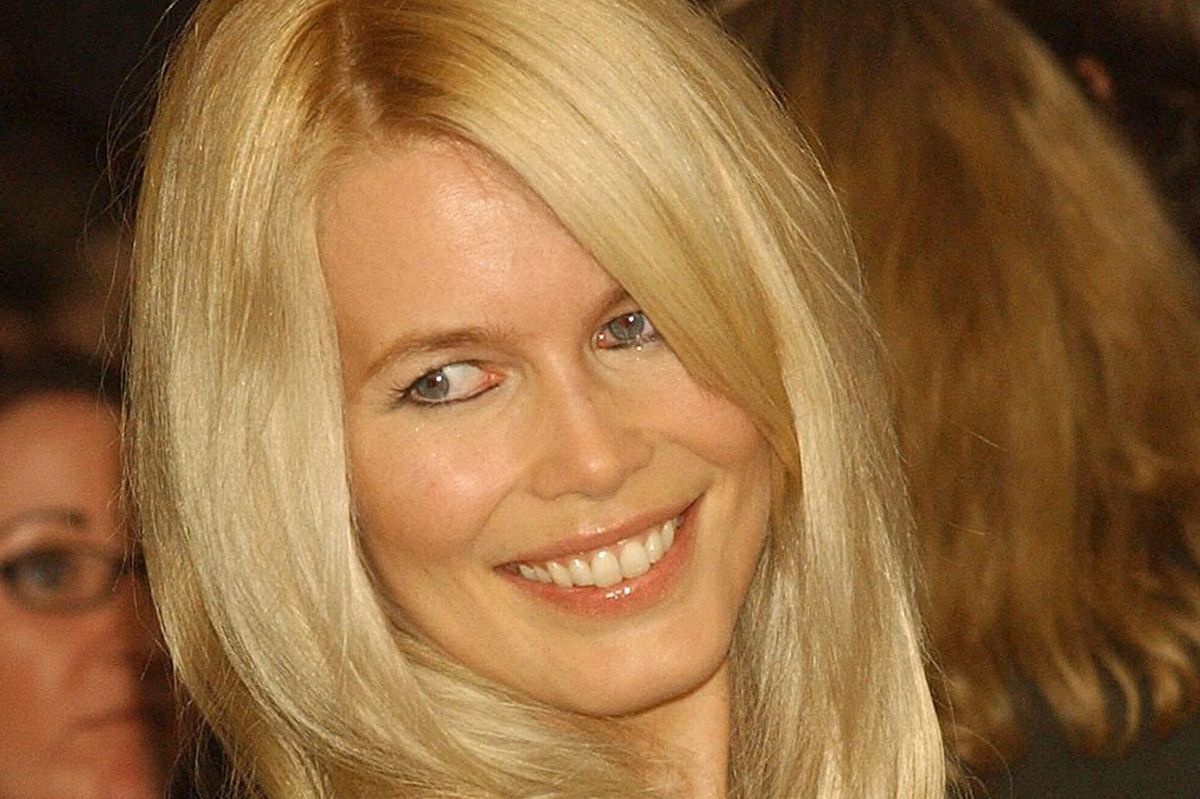Claudia Schiffer plays Carol, a single mother and the love interest for Liam Neeson’s character, widower Daniel, after he mentions she is his dream woman throughout the film
She might only have appeared on screen for 60 seconds but Claudia Schiffer was reportedly paid a truly blockbuster sum of money for her brief cameo in Love Actually. The supermodel plays the role of Carol who is a single mother and the love interest for Liam Neeson’s character, widower Daniel.
This comes after he mentions her as his dream woman throughout the entirety of the film is Claudia Schiffer. It has been reported that the star received quite the pay cheque despite only appearing for about a minute in total. Her appearance came back in 2003 and she is said have been paid around £275,000, or £4,500 ($6,100) per second for the job.
READ MORE: Joanna Lumley admits extreme threat to get Jennifer Saunders on Amandaland Christmas specialREAD MORE: Strictly star to spend Christmas Day alone in heartbreaking admission
Vogue reported that Andrew Holmes’s book How Much?!: The $1000 Omelette… and 1100 Other Astonishing Money Moments revealed the impressive amount. Now, 22 years on from when the movie was filmed, the pay cheque would be the equivalent of £458,000 ($616,000) or £7,633 ($10,274) per second.
Claudia’s short scene in the film comes after Daniel’s son, Sam (played by Thomas Brodie-Sangster), finishes playing the drums in his school play in a bid to impress his classmate Joanna.
Daniel then meets Sam backstage to congratulate him on her performance when Sam says that his plan to win his classmate over hasn’t worked and she was on her way to the airport to go back to the US.
However, this doesn’t stop them as they then make their way to the car to drive to the airport. But as Daniel turns around, he bumps into a school mum, Carol, who is played by Claudia.
Carol apologises as Daniel explained that it was his fault. Carol then goes on to ask if Daniel was Sam’s dad as he then confirms and the pair shake hands.
Daniel confessed that he hopes that they will meet again as Carol replies “I’ll make sure we do”. Claudia recently opened up about her personal life as she said her focus changed after she married Matthew Vaughn and they had their three children, Casper, now 22, Clementine, 21, and Cosima, 15.
She said she found that she became less “competitive” and that she is content with what she has achieved in her life despite knowing she could book more jobs if she wished.
The supermodel recently spoke to HELLO! magazine where she opened up about her career as well as her family life. She said: “When I was in my 20s, travelling around the world, my focus was on my career – working hard, being competitive and getting to the top.
“That changed when I had kids, and now, I feel lucky to have such a wonderful family. I’m proud of my children, they’re very down to earth and their well-being is mine and my husband’s priority.”
The Mirror has contacted Claudia’s reps for comment
Like this story? For more of the latest showbiz news and gossip, follow Mirror Celebs on TikTok, Snapchat, Instagram, Twitter, Facebook, YouTube and Threads.








